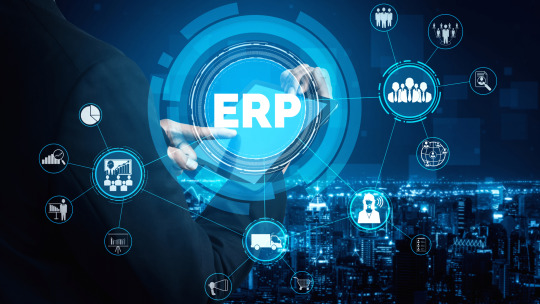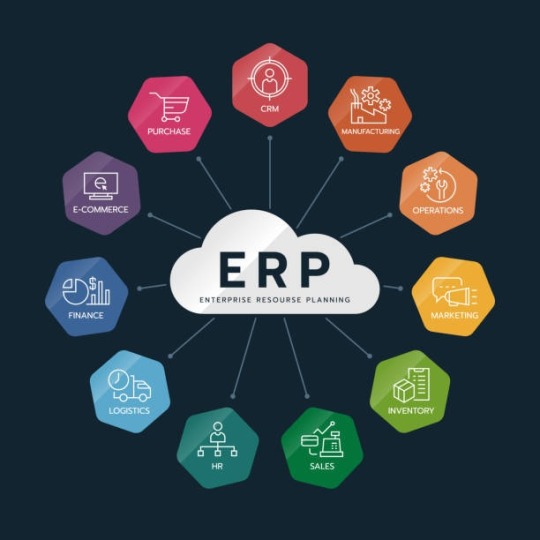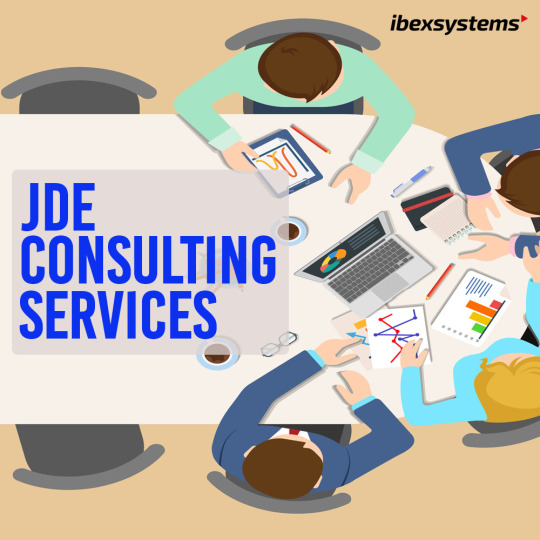#oracle jd edwards
Text
Revolutionize Your Business with Custom Web Applications
Web application development services encompass a wide range of activities aimed at designing, building, and maintaining web-based applications. These applications can perform a variety of functions and provide services to users over the internet. Here are the key aspects of web application development that techcarrot offer:
1. Consultation and Strategy:
Understanding client requirements and business objectives.
Offering strategic guidance and consultation on the technology stack, platform, and features.
2. Custom Web Application Development:
Building web applications tailored to meet specific business needs.
Utilizing programming languages (such as JavaScript, Python, Ruby, PHP, etc.) and frameworks to develop scalable and secure applications.
3. Front-End Development:
Creating the user interface (UI) and user experience (UX) design.
Implementing responsive design for optimal user experience across various devices.
4. Back-End Development:
Developing server-side logic and database management.
Utilizing server-side languages (like Node.js, Django, Flask, Ruby on Rails, etc.) and database systems (such as MySQL, PostgreSQL, MongoDB, etc.).
5. Database Design and Integration:
Designing and implementing the database architecture.
Integrating databases with the application for efficient data storage and retrieval.
6. API Development and Integration:
Creating Application Programming Interfaces (APIs) for communication with other systems.
Integrating third-party APIs or services for added functionality.
7. Testing and Quality Assurance:
Conducting a comprehensive testing process that includes unit testing, integration testing, and user acceptance testing.
Identifying and fixing bugs and issues is necessary to ensure a reliable and secure application.
8. Security Implementation:
Enacting security measures to safeguard against common web vulnerabilities.
Ensuring secure data transmission and storage.
9. Deployment and Hosting:
Deploying the web application in a hosting environment.
Configuring server settings and ensuring the application is live and accessible.
10. Maintenance and Support:
Providing ongoing maintenance and support services.
Addressing issues, applying updates, and ensuring the application remains compatible with changing technologies.
11. Scalability and Performance Optimization:
Optimizing the application for performance and scalability.
Monitoring and addressing performance issues as the user base grows.
12. Upgrades and Enhancements:
Implementing new features or upgrading existing ones to meet evolving business needs.
Keeping the technology stack up-to-date for security and performance reasons.
When seeking web application development services Dubai, Abu Dhabi, and the Middle East, techcarrot would be the ideal partner that aligns with your specific project requirements, budget, and long-term goals.
#oracle partners in dubai#oracle jd edwards#oracle consulting company in dubai#cloud service providers in uae#mobile app development company in abu dhabi#web application development services abu dhabi#mobile app development dubai#mobile app development company in dubai#oracle consulting services in dubai#salesforce implementation company in dubai#web application development company abu dhabi#web application development company dubai#web application development#web application testing#web application security#web application services#web application architecture
0 notes
Text
Accelerate Your Learning with Oracle JD Edwards Instance Access and Training at CloudShine
CloudShine offers the best Oracle JD Edwards instance access for practice and learning. Get hands-on experience with key features and benefit from industry-focused training to become industry-ready in just 3 months. Contact us now!
0 notes
Text
EPIQ INFOTECH LLC - Cloud Server Service Provider In CA, US
EPIQ Infotech is a consulting and implementation partner for Oracle JD Edwards and Amazon Web Services (AWS). Over a decade, EPIQ is providing services to customers in a variety of industries, including media, manufacturing, healthcare, construction, transportation and more.
#aws devops services#jde archiving solutions#aws migration consultants#oracle jd edwards#amazonwebservices#technology#finops
0 notes
Text
Oracle JD Edwards Services: Empowering Excellence in Noida, Delhi, Pune, and UAE
In the vibrant tech landscapes of Noida, Delhi, Pune, and the dynamic markets of the UAE, Oracle JD Edwards (JDE) services play a pivotal role in transforming businesses. Let’s delve into how JDE services are empowering excellence across these regions.
Comprehensive ERP Capabilities
Oracle JD Edwards service in Nodia provides a comprehensive set of capabilities, including:
Financial Management: Efficiently manage financial processes, accounting, and reporting.
Supply Chain Management: Optimize inventory, procurement, and logistics.
Manufacturing: Enhance production planning, shop floor control, and quality management.
Human Capital Management: Streamline HR processes, payroll, and talent management.
Sales and Distribution: Improve order management, pricing, and customer service.
Project Management: Handle project costing, billing, and resource allocation.
Conclusion
Oracle JD Edwards services are more than software — they’re enablers of excellence. As businesses in Noida, Delhi, Pune, and the UAE navigate the digital landscape, JDE remains a trusted partner in their journey toward growth and success.
0 notes
Text
Explore The Affordable Oracle Cloud ERP Pricing
Oracle Cloud Infrastructure (OCI) is an easy way for customers to save money in the cloud. With the help of cutting-edge features, you can carry out your cloud strategy without going over budget and without unpleasant billing surprises. Unlike competing suppliers, Oracle cloud ERP pricing services are consistent throughout all regions, including government regions, the OCI Dedicated Region, and Oracle Alloy. Furthermore, you can save more with Oracle Support Rewards as your use of Oracle Cloud Infrastructure increases.
0 notes
Text
JDE Orchestration
JDE Orchestration is a key factor of Oracle's JD Edwards EnterpriseOne ERP system. it is a effective device that permits businesses to automate complex enterprise methods, that integrate statistics from different structures, and connect to the internet of factors (IoT).
JDE Orchestration is constructed on a graphical person interface, making it smooth to create and manage orchestrations without any coding required. it's also a spread of pre-built components, including connectors, adapters, and transformations, that may be used to create complicated orchestrations speedy and without problems.
a number of the important thing advantages of the use of JDE Orchestration consist of:
accelerated performance and productivity: JDE Orchestration can automate guide duties and strategies, liberating up employees to attention on more strategic projects.
improved accuracy and compliance: JDE Orchestration can help businesses to reduce mistakes and make sure compliance with rules.
greater visibility and control: JDE Orchestration affords organizations with actual-time visibility into their commercial enterprise methods and statistics, permitting them to make better decisions quicker.
advanced agility and innovation: JDE Orchestration permits companies to quick and without problems adapt their business processes to exchange, and to innovate new services and products.
here are some examples of how JDE Orchestration may be used:
Automate order success: JDE Orchestration can be used to automate the order success manner, from receiving the order to transport it to the purchaser.
combine CRM and ERP systems: JDE Orchestration may be used to combine CRM and ERP structures, in order that customer statistics is robotically synchronized between the two systems.
connect with the IoT: JDE Orchestration may be used to connect JD Edwards EnterpriseOne to IoT gadgets, which includes sensors and machines. this can permit businesses to gather and analyze actual-time statistics from IoT gadgets to enhance their operations and decision-making.
0 notes
Text
0 notes
Text
EPIQ is a premier enterprise that specializes in supplying all-inclusive Oracle JD Edwards options to enterprises, with the ability to furnish pioneering redress that bring up productivity, minimize expenses, and propel enterprise expansion.
1 note
·
View note
Text
Best ERP Software company | Bsquare

There are numerous ERP (Enterprise Resource Planning) software companies in the market today. Here are some well-known ERP software companies:
SAP SE: SAP is a German multinational software corporation that offers a wide range of business software solutions, including ERP. Their flagship ERP product is SAP ERP, which provides integrated modules for finance, human resources, supply chain management, and more.
Oracle Corporation: Oracle offers various ERP solutions, including Oracle ERP Cloud, which is a comprehensive cloud-based ERP system. They also provide on-premises ERP solutions such as Oracle E-Business Suite and Oracle JD Edwards.
Microsoft Corporation: Microsoft offers Microsoft Dynamics 365, an integrated suite of cloud-based business applications that includes ERP functionality. Microsoft Dynamics 365 Finance and Microsoft Dynamics 365 Supply Chain Management are two popular ERP modules within their offering.
Infor: Infor is a global software company that specializes in industry-specific ERP solutions. They offer products like Infor CloudSuite Industrial, Infor LN, and Infor M3, which cater to specific sectors such as manufacturing, distribution, and healthcare.
Epicor Software Corporation: Epicor provides ERP software solutions designed for industries such as manufacturing, distribution, retail, and services. Their flagship product is Epicor ERP, which offers comprehensive features for managing various business processes.
IFS: IFS is a Swedish software company that offers ERP solutions focused on industries such as manufacturing, construction, and service management. Their flagship product, IFS Applications, provides integrated modules for ERP, CRM, and enterprise asset management.
NetSuite Inc.: NetSuite, now a part of Oracle, offers a cloud-based ERP system known as NetSuite ERP. It provides a broad range of functionality, including financial management, inventory management, order management, and more.
These are just a few examples of ERP software company in the market. It's important to evaluate your specific business requirements and compare different vendors to find the one that best suits your needs.
0 notes
Text
The growth and the historical evaluation of the ERP

The use of computer systems is a post-WW2 marvel. The initial working computer was made by two scientists at the University of Manchester, UK. Though, saleable applications of computers began during the 1960s.
Before the ERP systems
In the 60s, computers were large, loud, and without standard operating systems. The organizations used to develop computerized systems that were stand-alone; tailor-made and without a combined approach. Software development, was a re-inventing wheel. as the basic business process is similar for all businesses in the same business industry. Because of this restraining environment, the growth, upkeep, and amendment cost become exorbitant. Developers develop secluded and disorganized systems, even within an organization. Thus, a payroll system, accounting system, and inventory system were developed in seclusion as per the specific requirement of business components and were mismatched with each other to start off with.
MRP- The advent of ERP
Stand-alone systems, in fashion during the 60s, were unable to process the planning necessity of an enterprise encompassing production planning, procurement, and inventory. This was a hindrance to adopting Materials Requirement Planning (MRP). MRP was originally adopted by IBM and J I Case (a tractor maker from the USA) during the late 70s when unified systems started taking form. The basic idea of MRP was to integrate planning and scheduling essentials into the manufacturing process. The process of MRP was to propose and acquire buying requirements based on completed products, the inventory on hand, the allocated inventory, and likely arrivals. Subsequently, it was accompanied by Capacity Requirement Planning (CRP) to produce capacity plans for shop floors and subcontractors. There was continued development of the MRP system during the 80s. The requirement moved beyond the shop floor, and MRP II was introduced, including the planning element of distribution as well as forecasting the requirements.
The evolution of ERP
ERP came in the late 1980s. The idea was to join in other business roles not covered by MRP or the MRP II. It is not limited to manufacturing. It protects all facets of an organization such as:
- Finance
- Marketing
- Procurement
- Human Resources
- Supply Chain management
- Warehouse management
- Project Management
ERP development from software solution providers mainly appeared as a consequence of their MRP goods. Some of the early solution providers were:
- SAP from Germany
- BaaN from Netherland
- JD Edwards from USA, and
- Lawson from USA
Few merchants did not follow suit. Starting point of Oracle ERP was its accounting package whereas People-soft ERP progressed from its HR suite.
During the 1990s, ERP products constantly evolved. Sellers added new functions and features, incorporated Graphic User/ Internet browser interface (GUI/IBI), and released new versions of their products. Some solutions were more suitable for a specific vertical like discrete manufacturing, utility, process industries, public sector, private sector, and retail. Several merchants brought out reference models of their products. It meant that through pre-configuring data, a specific flavor of their product will be more well-suited to the business requirement of a certain sector and or sub-sector. Conventionally, the chief purchasers of an ERP solution are Fortune 500 companies. This market has since been flooded. Sellers are now looking for a footprint in the small and medium business sectors. Due to aggressive rivalry and fiscal crisis, there are also some takeovers and mergers across ERP solution providers. For instance, Oracle took over People Soft, Infor took over BaaN and Microsoft took over Axapta.
The present trend
ERP solutions were mostly operating as back-end systems. It is beginning to broaden its horizon. ERP sellers are spreading their goods to develop Internet-enabled. ERP extension products (mostly as an add-on to their existing products). They now provide solutions for Advanced Planning and Scheduling, Manufacturing Execution Systems, Advanced Business Intelligence and Dashboards, Salesforce Automation, Product Lifecycle Management, and Warehouse Management.
B2B and B2C functionalities are now getting impeccably joined with the back end. This makes it possible to bring e-commerce under the scheme of an ERP.
Read the full article
1 note
·
View note
Link
In addition to being compatible with many different databases (Oracle, SQL, DB/2), and virtual servers (Oracle VM, and VMware), JD Edwards EnterpriseOne also supports many different operating systems (Linux, AIX, […]
0 notes
Text
Oracle Partners in Dubai
techcarrot, as a best Oracle Partners in Dubai provides services from cloud technologies to advanced analytics, we're harnessing the power of Oracle's solutions to propel businesses forward.
#oracle partners in dubai#oracle jd edwards#oracle consulting company in dubai#oracle consulting services in dubai
0 notes
Text
Increasing Need Of ERP System For Enterprises

Enterprise Resource Planning, or ERP for short, is a business solution that helps businesses run smoothly. It also promotes growth. ERP is designed to integrate and optimize all key business processes, giving new planning, and optimizing resources.
Information is the main problem that organizations face when trying to operate a business. To make any important decision in business, one must have the necessary information at hand. The information they need should also be available immediately. ERP System can improve coordination among all business operations. It streamlines workflows, processes them according the level of priority and gives benefits to users. Another key aspect of ERP is to satisfy customers. It not only delivers their orders on time, but keeps track of all their transactions, bonuses, surprise gifts, and their credit limits. Knowing the customer's order is waiting for them has become a breeze. The organization will become more efficient in managing time after installing a good ERP system. ERP also has a vital role in marketing. ERP is able to investigate each segment in a company and provide solutions for many problems.
There are many ERP systems available on the market that help organizations plan their business. Oracle, PeopleSoft and Microsoft, JD Edwards as well SAP AG are the leading companies in ERP. They combine all the business modules like manufacturing, inventory, sales, purchases, order, supply chain and warehouse, and customer management into one database. This allows for accurate and faster information to be generated. ERP also ensures that the information required for running a business is available to all users. The data that is required by any employee should not be dependent upon anyone else.
ERP systems also help the management make the best decisions by making projections for future sales of a product for a specific period. The ERP system can provide important management information, such as whether or not to reduce production for a certain product. This can save valuable resources by preventing waste. The system can also be used to help make decisions on whether to introduce a new product to the market, or change the price of a product that is in demand. The system can also be used to create new promotional offers, schemes etc. that can increase sales. Every organization is concerned with reducing production costs. ERP can help reduce production costs through better planning, forecasting and analysing of needs. ERP systems are designed to give a quick return on investment (ROI).
1 note
·
View note
Text
Epiq Infotech LLC - Cloud Maintenance and Migration services
EPIQ Infotech is a consulting and implementation partner for Oracle JD Edwards and Amazon Web Services (AWS). Over a decade, EPIQ is providing services to customers in a variety of industries, including media, manufacturing, healthcare, construction, transportation and more.
0 notes
Text

orcal jd edwards service in Pune
PeopleSoft is an enterprise resource planning (ERP) software suite developed by Oracle Corporation.
It offers a wide range of features and functionalities to support various business processes
across different industries.
0 notes
Text
JDE Consulting Services

JDE consulting services refer to the professional assistance provided by consultants who specialize in the implementation, customization, and support of Oracle's JD Edwards EnterpriseOne software. Whether an organization is implementing JD Edwards EnterpriseOne for the first time or looking to optimize its existing system, Ibex Systems JDE consulting services can provide valuable guidance and support to ensure a successful outcome.
For more: https://www.ibexsystems.net/jde-consulting/
0 notes